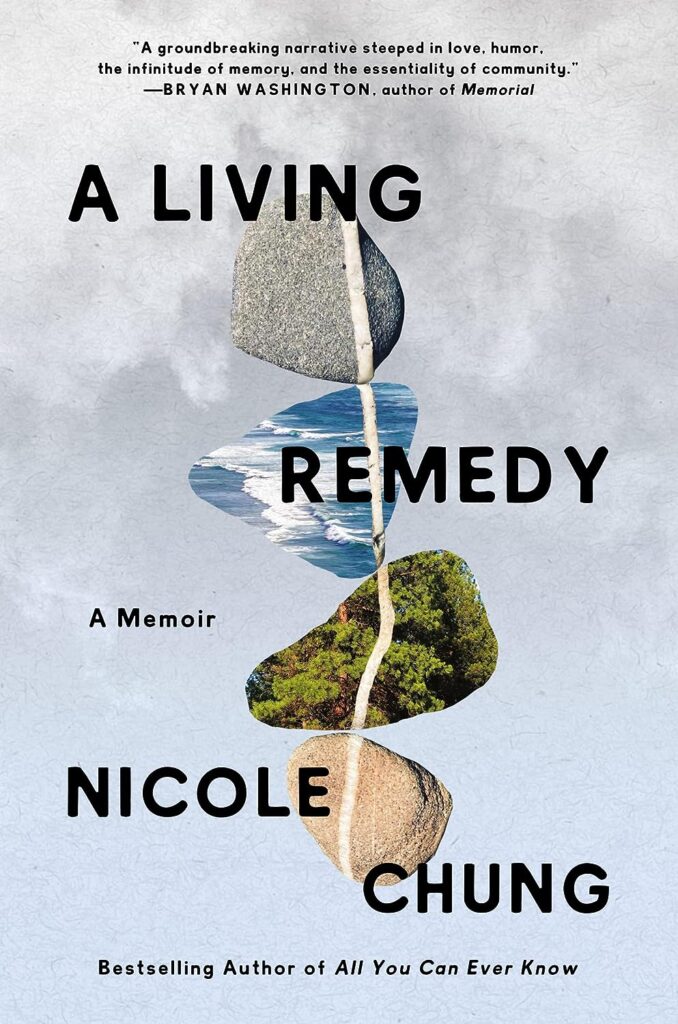
Nicole Chung’s Living Remedy is the first memoir I’ve read that made me cry. Part of this lies in the subject matter. The first section of Chung’s heartfelt memoir reckons with her status as a transracial adoptee, reared in the humble abode of a religious couple in rural Oregon. Growing up in an overwhelmingly white community that singled her out for her ethnicity, she grapples with questions of home, of belonging. She describes how her adoptive parents have difficulty relating to her because of this: “I could no more make them understand how it felt to be a Korean American adoptee than they could transfer their whiteness to me.”
Despite this impasse, she speaks of them with such love and compassion that it’s hard not to be moved by her words. In fact, Chung’s memoir is a heartbreaking attempt to grapple with their hapless, one-after-another deaths at the hands of America’s healthcare system. She depicts how her working-class family lived “emergency to emergency” – their financial plight was so precarious insofar as they couldn’t afford rudimentary insurance coverage for their fragile constitutions. Indeed, she chalks her father’s death up to “negligent homicide” by the “state’s failure to fulfill its most basic responsibilities to him and others like him.” In this way, Chung’s memoir morphs from a mediation on racial identity to class identity. By politicizing the personal, Chung pens a grief-filled indictment of capitalism, illuminating the grim reality of what it’s like to live in America – that “unless you attain extraordinary wealth, you will likely be unable to help your loved ones in all the ways you’d hoped,” living with the “specific, hollow guilt” of leaving them behind.
–Andrew Hu
